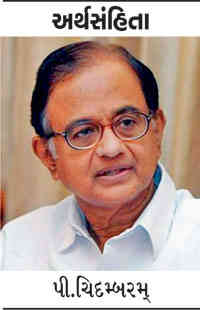
- In its July 2021 bulletin, the Reserve Bank of India (RBI) has mildly acknowledged that food and fuel prices have risen.
 Our sovereignty means the Government of India. The Government of India has the power to start wars, conclude peace agreements, conclude international treaties and borrow money or print money in the form of coins or currency notes.
Our sovereignty means the Government of India. The Government of India has the power to start wars, conclude peace agreements, conclude international treaties and borrow money or print money in the form of coins or currency notes.
In addition to sovereign powers, there are also a number of quasi-governmental bodies, which I do not want to discuss in detail here. The country's Reserve Bank and public sector banks such as SBI are considered quasi-governmental entities.
This preamble must be made because, in India, only quasi-governmental organizations seem to be more concerned with the issue of public outrage. I'm talking about inflation here. Inflation has always been a problem for every democratic government.
Bitter truth
According to a press release issued by the National Statistics Office on July 15, 2021, retail inflation rose even after breaking the upper limit set by the government. While the Reserve Bank of India (RBI) has been tasked with keeping inflation in the range of 8 per cent with a 2 per cent decline, inflation has risen to 7.5 per cent. Urban retail inflation, which stood at 7.41 per cent in May, rose to 7.5 per cent in June. Headline inflation rose to 7.5 per cent in a month from 7.50 per cent.
- Food inflation 7.5 percent
-Pulses 10.01 percent
-Fruits 11.5 percent
-Transportation inflation 11.2%
-Fuel and light inflation 12.5% and
Inflation in oil and fats has reached 7.5 per cent.
In my view this inflation has not increased due to demand. In contrast, private consumption has declined. Inflation has risen because people have too much money in their hands, not even that. The reason for the rise in inflation is the erroneous policies of the government, especially the tax policy.
Analysis of RBI
In its July 2021 bulletin, the Reserve Bank of India (RBI) has mildly acknowledged rising food and fuel prices. Inflation in clothing and footwear, essentials and services and education has risen sharply. The average price of petrol has gone up by more than Rs 100 per liter while diesel is being sold at Rs 2.50 per liter. In addition, kerosene and LPG have also become more expensive. Prices of goods and services have also gone up.
All these data point in the same direction and that is the tax policy of the government. There are three taxes that are driving up prices.
First, taxes on petrol and diesel, especially cess levied by the central government on the sale of these fuels. Central excise and state excise are understandable as the central and state governments need to generate revenue, but there is no rationale for cess. A cess of Rs 5 per liter is levied on petrol and Rs 2 on diesel. It is estimated that the central government collects Rs 2.50 lakh crore annually through this cess. Cess is usually levied for a specific purpose and for a specific period of time. But both these limits have been violated and petrol and diesel are being misused to make money through cess. This is a perverted kind of exploitation, it would not be wrong to say so.
The second tax includes import duties. Reversing the trend that started in 2009, the government has increased import duties on many goods. This has led to an increase in the prices of raw materials required for the manufacturing sector in the country.
Thirdly, the impractical rate of GST is in context. Various rates of GST continue to be a big problem. The rate of GST on widely used items such as processed foods, home appliances, etc. is 12 or 15 per cent. Higher rates of GST eventually lead to price increases for end users.
The cess on fuel is brutal
The government has forgotten that each of the above taxes i.e. cess, import duty and GST is an indirect tax and has been seen to be retreating in such a way that it is being levied equally from the rich and the poor. Due to this, the burden on the poor is relatively low.
Another thing the government is forgetting is that these taxes are levied on raw materials which are covered in the supply chain which ultimately leads to an increase in the prices of final goods and services. Rising fuel prices adversely affect transport, agriculture, industry in every sector.
A recent SBI report noted that higher fuel prices have reduced costs behind health, grocery and utility services. In addition, bank deposits have declined and family debt has increased. Financial savings have also been affected. The SBI report recommends reducing taxes and lowering petrol-diesel prices. Failure to do so will slow down the economic recovery.
Here we are seeing the attitude of the government, if the people suffer, even if they suffer and today is our destiny, we are seeing the indifferent attitude of the people. The conclusion is the same, this conclusion is a distortion of the so-called democracy created by the people, for the people and by the people.
Comments
Post a Comment
What you think give us your idea about this article we publish your words on our site